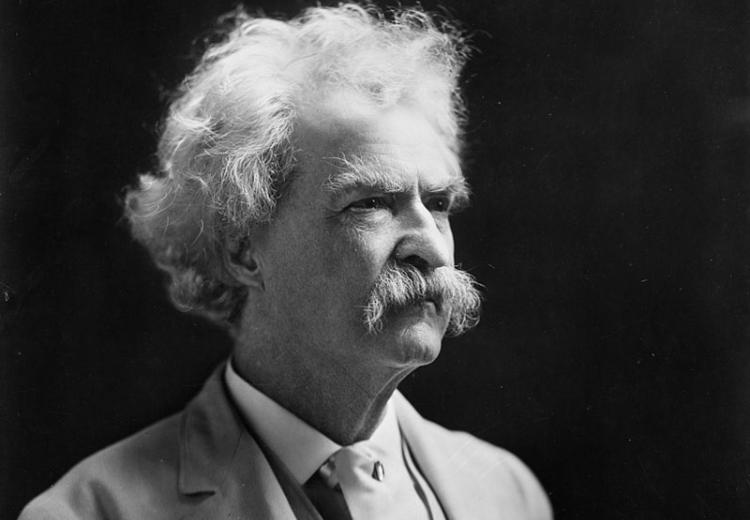Introducing the Essay: Twain, Douglass, and American Non-Fiction

Mark Twain (Samuel L. Clemens).
The essay is perhaps one of the most flexible genres: long or short, personal or analytical, exploring the extraordinary and the mundane. The first collection of personal essays is credited to Michel de Montaigne; his Essais was first published in 1580. The word essay comes from the French verb essayer, which means, "to try."
American essayists examine the political, the historical, and the literary; they investigate what it means to be an "American," ponder the means of creating independent and free citizens, discuss the nature of American literary form, and debate the place of religion in American society. The essay adopts myriad forms, from letters and speeches, to sermons and treatises. Famous American essays range from Thomas Paine's Common Sense and the Federalist Papers scribed by "Publius" (the pen name for Alexander Hamilton, John Jay, and James Madison), to Twain's incisive wit and Emerson and Thoreau's writings on nature and religion in the 19th century.
This lesson plan serves as an introduction to American literary non-fiction writing and focuses primarily on teaching some basic approaches to recognizing rhetorical strategies adopted for persuasive effect in essays and non-fiction. The lesson plan concludes with some suggestions for essay topics and websites that provide guidance in writing essays. Students are encouraged to write an essay using the strategies learned in this lesson or critique a well-known essay based on their new knowledge of rhetorical strategies.
Guiding Questions
What are the different kinds of essays and how are they based in rhetorical tradition?
What are some effective strategies in persuasive writing?
Learning Objectives
Learn the various methods for writing essays and their basis in rhetorical tradition
Learn through example effective strategies for writing essays and argumentative prose
Read and analyze Mark Twain and Frederick Douglass's writing styles
Understand the persuasive appeals: ethos, logos, and pathos.
Apply rhetorical strategies learned in this lesson to essay writing projects of their own.
